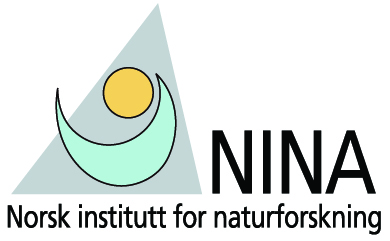PhD in machine learning related to ecological issues
- Arbeidsgiver
- Norwegian Institute for Nature Research (NINA)
- Stillingstittel
- Phd position
- Frist
- 30.08.2020
- Ansettelsesform
- Engasjement
The Norwegian Institute for Nature Research (NINA) invites applicants for a three year PhD-position for machine learning related to ecological issues. The PhD-position will be linked to Department of Computer Science (IDI; https://www.ntnu.edu/idi), Norwegian University of Science and Technology (NTNU), Gjøvik, and will follow the PhD-program at NTNU.
About the Norwegian Institute for Nature Research (NINA)
NINA is Norway’s largest applied ecology research institute, with 285 employees. NINA conducts research within the natural and social sciences that are related to the interactions between humans and nature. NINA seeks to conduct bot applied research of very high quality and of high relevance for real world application. The main office of NINA is in Trondheim, and there are research units also in Oslo, Lillehammer, Bergen and Tromsø. The PhD position will be located at NINA Trondheim and at CBD, NTNU.
Job description
Machine learning and deep learning are methods that is increasingly being used in ecological research with success. The PhD-candidate will work with development of methods related to image processing, GIS and remote sensing, acoustic environments or soundscapes and environmental-DNA (eDNA).
Image-based recognition has great potential in to automate and improve processes for many applications. Preliminary research in our departments has been carried out to identify plants, individual brown trouts and salamanders from images. This work is only an initial step towards achieving an accurate and automatic system. The PhD-candidate will further develop these methods.
In GIS and remote sensing, Google Earth Engine is arguably the most advanced cloud-based geospatial processing platform in the world. We are increasingly using this platform for processing of large gridded datasets including remote sensing, climate and terrain data. The PhD-candidate candidate will develop standard workflows to integrate Google Earth Engine and TensorFlow for processing of primarily remote sensing data including data from Copernicus Sentinel satellites, orthophotographs, LiDAR datasets and possibly drone imagery.
Monitoring of the acoustic environment, or soundscape, is fast becoming a key tool in species and ecosystem management. Automated acoustical survey methods are needed to scale-up monitoring practices to meet management needs in addressing global change effects on biodiversity. Inexpensive, open access acoustic loggers are now available, paving the way for new approaches to biodiversity monitoring. Yet, analysis methods are still lacking and PhD-candidate will be working on developing methods by machine learning on these issues.
Environmental-DNA (eDNA) is revolutionizing biodiversity monitoring, and the technological development of DNA-metabarcoding is producing high resolution taxonomically data on an unprecedented scale. In this part, machine learning will be utilized for classification of ecological status in relation to various stressors like climate change and anthropogenic effects based on large-scale taxonomically diverse eDNA-data.
A 3–6 months scientific visit abroad might be arranged during the PhD period.
Qualifications
• The applicant should have a MSc, or equivalent, within IT, machine learning, ecology, GIS or remote sensing or related field, with a grade of B or better. Applicants with no letter grades from previous studies must be able to document an equally good academic foundation
• The applicant is expected to document good knowledge to ecological issues
• The applicant should be fluent in written as well as spoken English, and being able to communicate in a Scandinavian language is an advantage
Terms of employment
We offer:
• Full time employment for three years
• Salary NOK 479 600-504 700 (lønnstrinn 54–57)
• Flexible working hours
• Good pension and insurance schemes
• A welcoming and inspiring working environment
• Good opportunities for professional development
For further information, please contact senior researcher Vegar Bakkestuen, (vegar.bakkestuen@nina.no, +47 934 66 787) or research director Kristin Thorsrud Teien (kristin.teien@nina.no, +47 930 06 805).
The application should contain:
• A one-page letter where the candidate explains their motivation for applying for this PhD fellow position and a brief description of the scientific relevance of the candidate’s education, work and research experience
• A CV including a list of publications (if relevant) with bibliographical references
• Contact details (telephone and e-mail) for three references
The application must be submitted in English or Norwegian. The application should be submitted by e-mail to siri.svendsen@nina.no. A selection of the candidates will be interviewed.
NINA seeks to increase the percentage of female scientists within the institute. Women are encouraged to apply for this position. When two applicants are considered equally strong, preference will be given to the female candidate.
Application deadline is 30 August 2020. Starting date not later than November–December 2020.
Om arbeidsgiveren
Norwegian Institute for Nature Research (NINA) is an independent foundation for nature research and research on the interaction between human society, natural resources and biodiversity. We are 280 employees divided between the main office in Trondheim and departments in Tromsø, Bergen, Lillehammer and Oslo.
- Sektor
- Privat
- Sted
- Sognsveien 68, 0855 Oslo
- Bransje
- Forskning, utdanning og vitenskap
- Stillingsfunksjon
- Forskning/Stipendiat/Postdoktor
Spørsmål om stillingen
- Kontaktperson
- Vegar Bakkestuen
- Stillingstittel
- Seniorforsker
- Telefon
- 93 46 67 87
- Kontaktperson
- Kristin Thorsrud Teien
- Stillingstittel
- Forskningssjef
- Telefon
- 93 00 68 05
Sognsveien 68, 0855 Oslo
